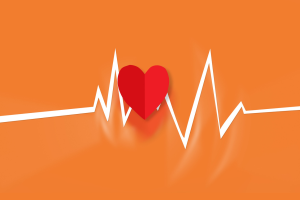5 Possible Treatments for Overweight and Obesity

The number of obese people in the world has more than tripled during 1975-2016 years — it is the result of the study provided by the World Health Organization. Today, 39 percent of adults over 18 years old are overweight, 13 percent of them are obese.
These numbers are alarming. Especially if consider that at least 1 person dies due to an eating disorder every 62 minutes.
Extra weight can be your accompanying or follow someone you care about. It’s a disease that must be treated until it’s too late. And below, we’re reviewing some possible methods.
No.1 Diet + sports
This type of treatment is suitable for people whose obesity is a result of lifestyle, nutritive disturbance, and lack of physical activity as:
- long intervals between meals
- excessive servings
- overeating in the evening or at night
- food reach of carbohydrates and fats (especially confectionery and animal origin) with a lack of fiber, etc.
In this case, you should visit a nutritionist and a trainer to develop the optimal program of well-balanced nutrition (it shouldn’t be just a strict diet) and physical activity. The program should be based on the difference in calories you get from food, and you spend, it must take into account your problem areas, metabolism, appetite, fat absorption, and other indicators.
No. 2 Liposuction
Liposuction is neither a treatment for obesity nor an effective way to reduce body weight. The procedure improves the appearance of patients but does not affect their overall well-being. Diseases do not disappear, blood pressure and sugar levels do not become normal — so a person losing weight…does not gain health.
This happens because fat cells are accumulated not only under the skin but also in the internal organs. This type of obesity is called a visceral one. The deposition of fat on the kidneys, liver, and heart can only be eliminated by diets, metabolism normalization, proper nutrition, and physical activity.
Only after weight reduction and stabilization, one may consider lipo.
Today, according to Bookimed, an international platform for hospital search, modern clinics offer lots of lipo options except a traditional one. Ultrasound, laser, vaser, 360, body jet are just several types of modern liposuction. Turkey, South Korea, Mexico, Thailand, still develop new ones.
No.3 Behavioral therapy
2.8% of American adults suffer from binge and compulsive overeating. These types of eating disorders happen because of psychological reasons. Typically, people do not know how to listen and hear their needs, and food is an easy and fast way to relieve their psycho-emotional stress. People eat much more food than others would eat in the same period (for instance, in 2 hours) and don’t control their quantity & quality. Afterward, overeaters feel guilt and shame.
Psychological overeating is successfully and fully treated if to treat it correctly. Psychiatrists apply different approaches, including cognitive-behavioral therapy, interpersonal psychotherapy, and dialectical behavioral one.
No.4 Medications
Medicines or dietary supplements can be appointed only as an addition to the diet, exercise, or surgery.
Anti-obesity drugs can be divided into those:
- reducing appetite
- affecting the metabolism
- increasing energy consumption.
Their administration must be strictly controlled by a therapist and prescribed according to your medical history.
No. 5 Bariatric surgery
Severe obesity with the body mass index (BMI) equal to 40 or higher is treated with surgery. This type of intervention is called bariatric surgery.
BMI represents the correspondence of a person’s mass and growth and defines whether the mass is insufficient, regular, or excessive. The index is important in determining indications for the treatment.
There are several types of recommended surgery distinguished by technical features and mechanism of action. The most common are gastric bypass surgery and sleeve gastrectomy.
Gastric bypass surgery is an operation combining the stomach volume decrease and reconstruction of the small intestine, aimed to reduce the absorption of fats and carbohydrates. This intervention does not require regulation in the postoperative period.
Weight loss after gastric bypass surgery is around 70-90%. The operation is indicated for patients with obesity followed by type II diabetes mellitus, and in 75-85% of cases allows to refuse taking insulin and other sugar-lowering drugs permanently.
A gastric sleeve means the removal of large curvature and the fundal part of the stomach, where Ghrelin, a “hunger hormone,” is produced. The operation is performed by the laparoscopic method.
Keep in mind that obesity is a health disorder, and its treatment must be appointed by a treating physician. Don’t ignore the signals the body sends!






